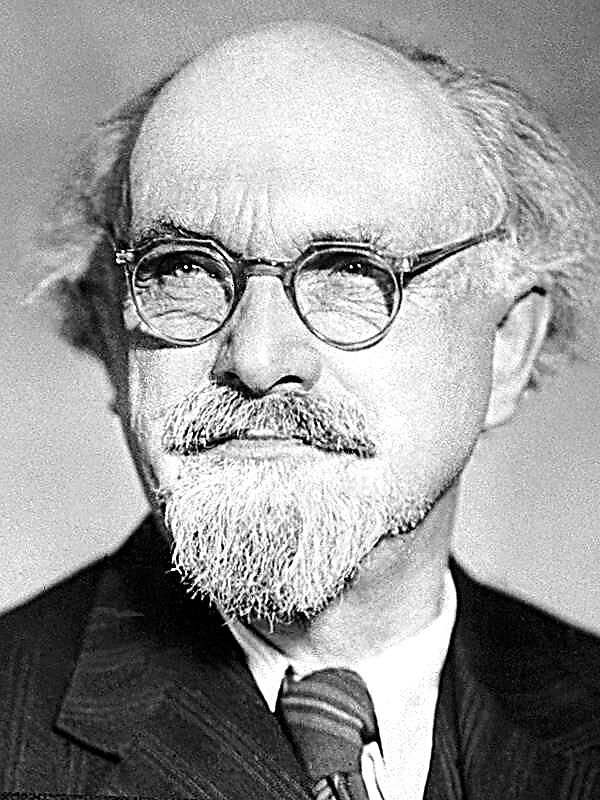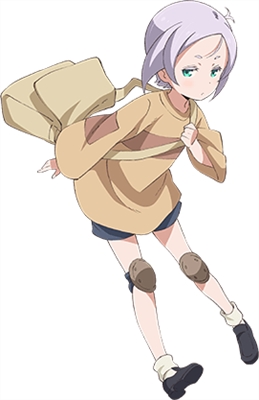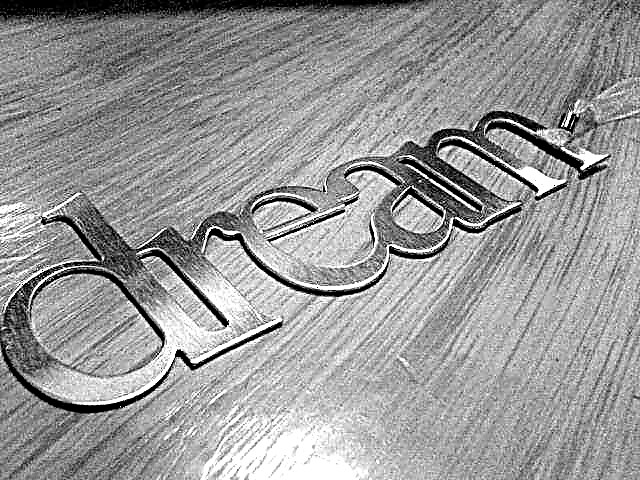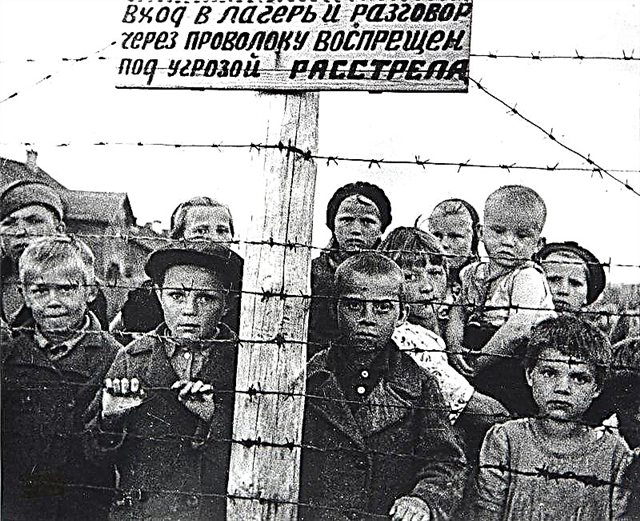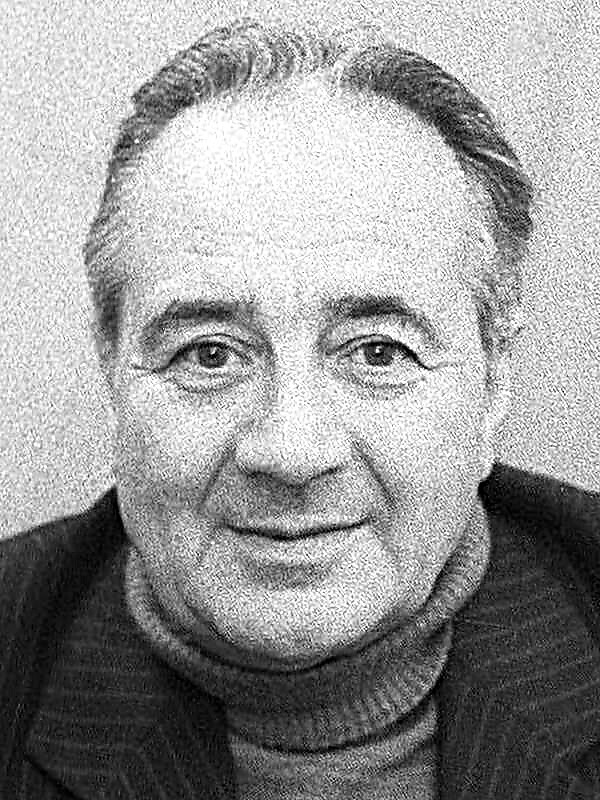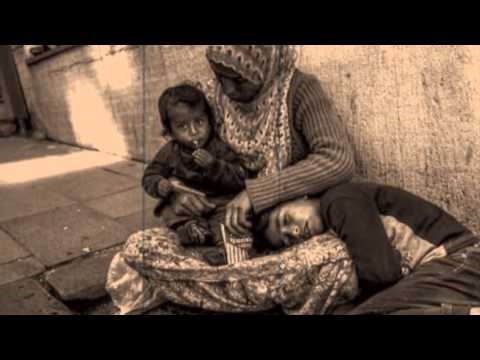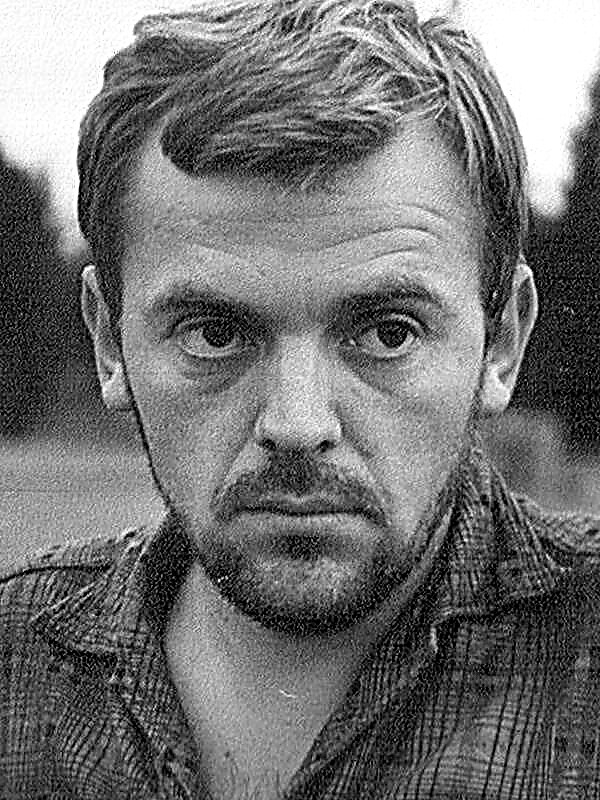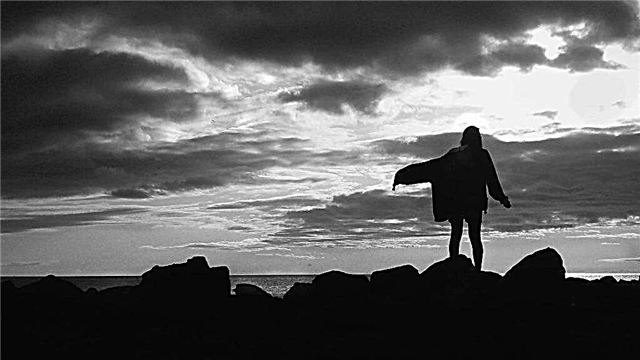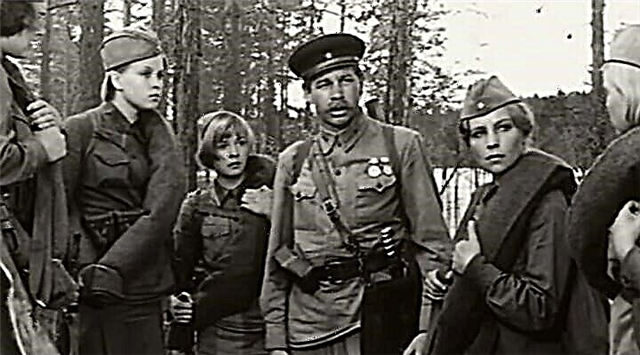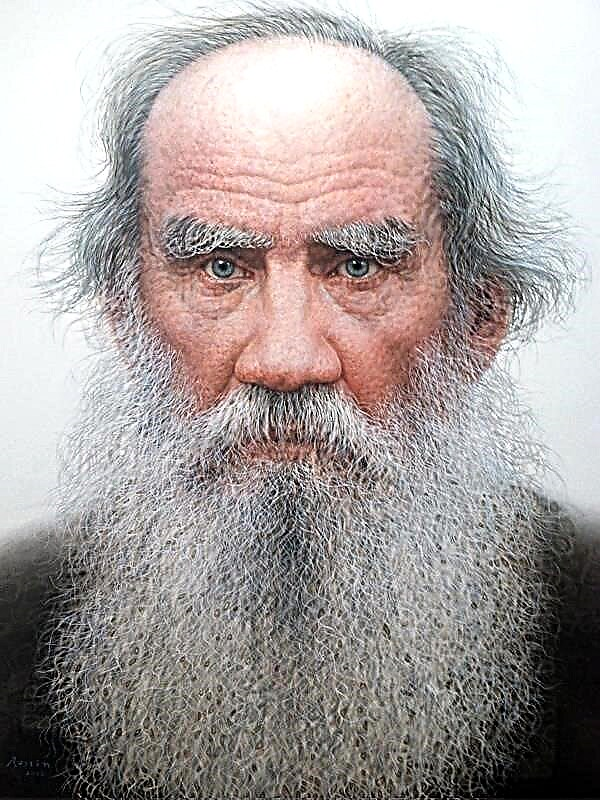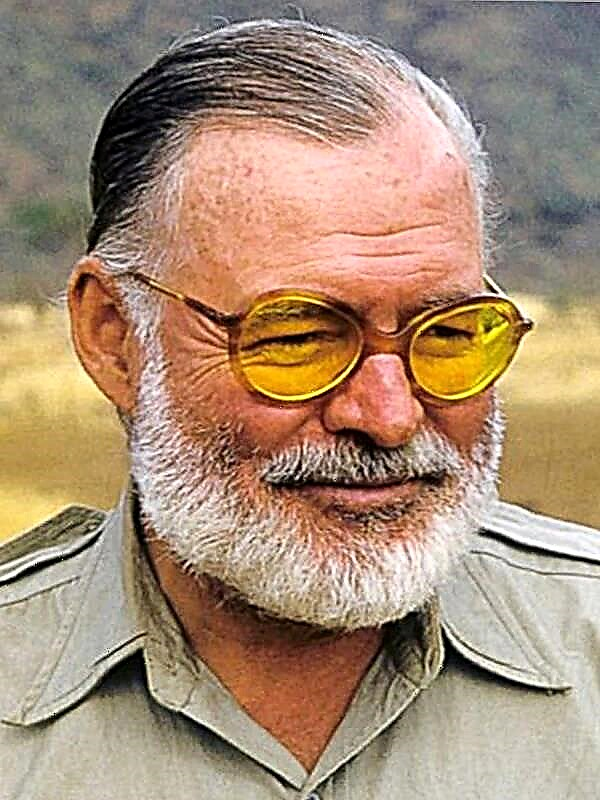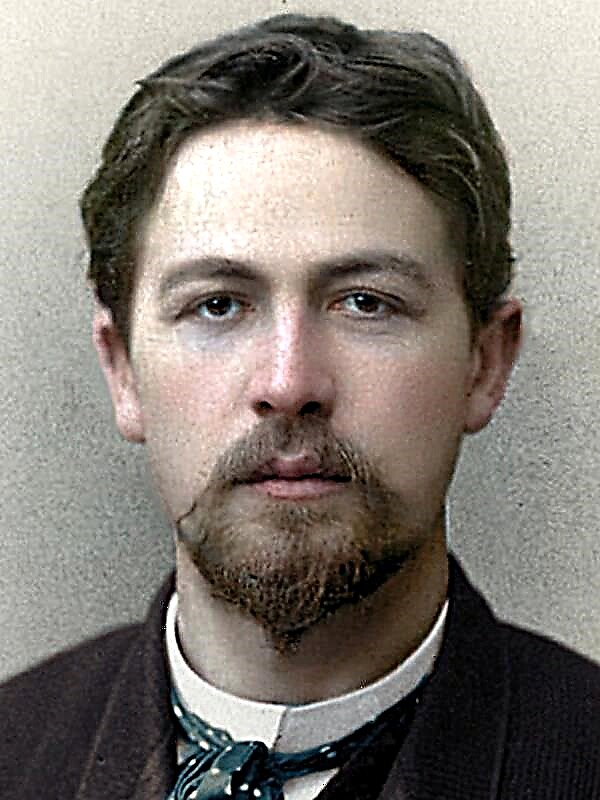Norway at the beginning of the 20th century The hero - Wilfred Sagen, the Little Lord, grows up in the hypocritical atmosphere of a wealthy bourgeois family. The extraordinary nature of the fourteen-year-old boy hates the pretense of his mother (his father is not alive) and other relatives, their desire to protect him from real life. The hero does not allow anyone into his inner world. However, trying to assert himself, Wilfred uses the same weapons as those around him despised - pretense. "He had another life <...>, not at all like the one they drew for themselves."
Waking up in the morning after the reception, which was arranged the day before by his mother, Wilfred feels annoyed, everything makes him nauseous: the room itself, its smells, the thought of going to school. Taking advantage of his influence on his mother, he asks her for permission to skip classes at school and go to Bugda: he hopes to find plants that are lacking in the herbarium under melt snow. When the mother leaves the room briefly, he unlocks the secretary and steals one and a half crowns from her wallet. Then he ascribes to the expense sheet in a neat handwriting to his mother the amount he has just appropriated. Of course he is not going to Bugde. The purpose of his journey is one of the distressed districts of the city. Passing by tram to these places, Wilfred feels the familiar already sweet chills in his body. In the gateway of one of the houses, using money and his ability to influence others, he finds one-day friends, in whose company he is robbing a tobacco shop. Of course, the hero does this only out of a desire to experience strong feelings, to feel power over people: he throws money from the cash register to the boys, like a handout. Before leaving the shop, the Little Lord deals a strong blow to the old shopkeeper. That, stunned, falls. Now Wilfred has another secret, a nasty act of which he alone knows - for this it is worth living! In a state of blissful peace, the hero decides to bring joy to his mother - she writes her a letter of appreciation for the education of her son in the writing of the headmaster.
The second, secret life of Wilfred, more and more, captures the hero more and more: the world in which he lives must be full of emotions, albeit created artificially. Sometimes, to cheer yourself up. Little Lord visits a classmate Andreas, a boy from a poor family. Having enjoyed enough of the “boredom” that reigns in this family, its miserable life, the humiliation of Andreas, he returns to his rich house, rejoicing that his life is so different from the life of a schoolmate. This thought puts him in a wonderful mood.
That spring, Wilfred’s last children's ball took place - here he had to pretend without sparing his strength. Being among his peers, Wilfred saw only one way to protect his loneliness - to feel among them a stranger. During a ball in Wilfred’s secret life, another significant event takes place. At dinner, the hero enters the terrace and suddenly sees a crying aunt Christina. In embarrassment, she walks up to the boy, pats him on the shoulder. Incidentally, for one second, the teenager’s hand touches her aunt’s chest. He is suddenly overwhelmed with heat. Before he knew what he was doing, Wilfred put his arms around Christine's neck and pressed his lips to hers. She immediately pushed him away, but not angrily, but as if regretting the impossible ...
After the incident at the ball, all the hero’s thoughts aspire to Aunt Christine, who embodies the secret of adulthood unknown to Wilfred. A teenager is looking for a meeting with her - and this opportunity presents itself: they and their mother have a summer vacation in Skovlja, and Christina comes to visit them. Wilfred’s childhood affair with Erna, his age-mate, is tied up in Skovlju. After the arrival of Aunt Christina, these lofty relationships begin to weigh on the Little Lord. Once in the forest he meets Aunt Christina, and “now their legs, lips did not merge in the same inept impulse: that which was devoid of flesh suddenly found flesh <...>, everything swam before their eyes, and they fell on hard grass. " But fate wished that Wilfred would remain virgin this time too. Only later, already in the city, Christine herself would come to him, and the Little Lord would experience what he so passionately sought.
Left alone in Skkoblu with his thoughts and feelings, the teenager painfully searches for answers to those questions that life constantly confronts him. Once, while swimming, the children suddenly discovered that Tom, the son of a gardener, had disappeared. The company of teenagers is embraced by the most terrible forebodings, all are suppressed. Erna begs Wilfred to do "something." And Wilfred, concentrating with inhuman effort of will, suddenly “sees” (this has happened to him before), where Tom might be. He finds Tom drowned in a deserted place - the boy was swimming away from the company, because he did not have bathing shorts. Wilfred brings Tom's body ashore, makes artificial respiration to exhaustion. But why doesn’t he want someone to be there now and help him? And if he alone does not cope? Does he prefer that Tom die, but doesn’t resort to someone else’s help? .. Damned questions haunt, torment Wilfred,
After some time, in the winter, the same premonition as in the case of Tom suddenly makes Wilfred return to Skovlju. He goes to the house of Fru Frisaksen, a beggarly lonely woman with “oddities,” who, as Wilfred accidentally discovered, was at one time his father’s mistress and who has a son from his father, six years older than the Little Lord. In the house he finds the body of Fru Frisaksen - she died, and no one knows about it. The boy falls ill: he is speechless (although relatives suspect that Wilfred is pretending to be). There is a doctor, an Austrian, who is taken to heal him. After recovering and returning home, the teenager again plunges into the atmosphere of lies and hypocrisy reigning in the mother’s house. They began to notice Wilfred drunk, he is increasingly looking for oblivion in visiting taverns, restaurants, beer cellars.
Somehow in a restaurant-variety show, two sat down with him, forced to pay for what he had drunk. Wilfred obeyed, they demanded more, a drunken conversation ensued. Two told a story that had once happened to them: a little grub - exactly like him - knocked out the local boys to rob a tobacco shop, and then killed an old Jew, the owner of the shop. Only now Wilfred finds out that the owner of the shop has died. A certain girl appears with a wound in the corner of her mouth - he saw similar ones in the pictures in the brochure about sexually transmitted diseases. Invites Wilfred to take a walk with her ... He woke up from a terrible pain in his hand - it was broken - covered in blood, naked, somewhere in the forest. From behind the branches of the trees there was a muffled giggle of the children, a male voice - they watched him. Trying to hide from people, he runs, not knowing where. Falls on the rails - the severity of the wheels of the train will probably bring relief. But there is no train, and the crowd of pursuers is already nearby. Wilfred runs to the sea, jumps from the pier into the water. But the pursuers untie the boats. One of them confidently says: "Now he can’t leave."
Norway during the First World War. The time of the impoverishment of many and the fantastic enrichment of those who, hypocritically shedding tears over the dead, successfully speculate on the stock exchange. The hero has matured, now lives separately from his mother, in the artist’s workshop (in recent years, the artist’s talent has awakened in him). The struggle between light and dark principles, between sympathy for people and indifference to them continues in Wilfred’s soul.
The financial situation of the hero is getting worse day by day - he still does not know how to "make money", does not want to look like a former classmate Andreas, who has now become a successful businessman. And you have to spend a lot, especially on Sedin, a girl with a faulty past, to whom he has a sincere feeling, - however, it seems, without reciprocity. Wilfred has to abandon the workshop. She and Sedina live in some kind of shack in the mountains, and from time to time Wilfred goes skiing down into the city like a thief, climbs when everyone is sleeping, into his mother’s house and stuffs his backpack with groceries. Once, returning after another grocery outing, Wilfred saw Celine on a bench directly opposite the entrance. The lower part of her body was naked, blood flowing down her legs. Nearby lay a lump soiled with blood and mucus: Sedina had a miscarriage. A tragic accident, or did she set up everything herself and did not have time to finish before Wilfred returned? This terrible question torments the hero.
Aunt Charlotte, father’s sister, died. In the crematorium, watching relatives, Wilfred once again becomes convinced that they have long been no longer a family, each exists on its own. Uncle Renee is leaving for Paris, with whom happy childhood memories are connected - it was he who introduced the boy to art. Standing on the pier, Wilfred feels that he loves this man very much, now something very important and expensive will leave his life ...
Wilfred is immersed in the life of one of the underground "clubs", and more simply, of gambling and brothels of Denmark. He got here by accident - he was riding a yacht with friends, and in Copenhagen, on suspicion of smuggling smuggling, the police arrested everyone. Wilfred escaped this fate thanks to Adele, one of the organizers of the North Pole club: she "senses a good lover for a mile and a half." However, Wilfred himself is not averse to playing this role: Adele is a beautiful, tall, strong woman, he is attracted to her egregious obscenity. He liked this life because "the light left his soul and no longer wanted to light up."
Once, when Wilfred was first lucky in a card game, the police raided the club with a raid. In the general turmoil, Wilfred manages to pocket his money. In the "salon" Wilfred finds an abandoned baby from one of the prostitutes and takes it with him. He hides part of the money in the pantry. For a long time, posing as a Dane looking for an apartment, he lives in the family of the famous writer Börge Wiid, is fond of translations, writing stories. Berge Viid highly appreciates the literary successes of Wilfred, by mutual agreement prints them under his own name, and they divide the money in half. A terrible incident occurs with Wilfred: once, while walking with a boy, he suddenly decides to get rid of him, throwing him off the cliff - what does he care about other people's problems! But suddenly surging children's memories stop the hero. Wilfred is being tracked by one of the club’s prostitutes, who says they want to kill him for taking the money. The boy’s mother died. Overwhelmed by an inexplicable desire to "take revenge" on the Viid family "for good," Wilfred admits to the people who sheltered him that he is not a Dane and not the father of the child, leaves the boy in this family and leaves - betraying has become his habit. Having taken the money from the cache of the club’s pantry, he is ambushed - he was followed by former "associates" of the club. Fleeing from his pursuers, the hero hides in the conservatory, where at this time Miriam Stein performs with a concert, a girl who has been in love with him since childhood. With the help of Berge Wiid, she redirects Wilfred to his homeland.
Returning home, Wilfred is trying to understand himself, to explain his existence. Seeing no meaning in his life, the hero decides to commit suicide. Kneeling in the bushes near the railway, he is waiting for a passing train, and suddenly realizes that he has no right to “break the beat of his heart” - that was what Wilfred's father once did - he must live to the end.
The Second World War. The persecution of Jews began in Norway. A group of refugees, including Miriam, makes their way through the snowy forest to the Swedish border - there, in the promised land, they will not be threatened. In the short moments of rest, Miriam recalls episodes from a past, carefree life. Along with these episodes comes the memory of Wilfred. She met him a quarter century ago, once saved him in Copenhagen. Then, in Paris, he gave her the happiest days; he chose many in his life, she - only him ... Suddenly a group of refugees runs into an ambush of the border police. Miriam and several other refugees manage to cross the border, while the rest fall into the power of the police. Their commander is a tall, slender, handsome man of about forty — usually such handsome men turn out to be the most cruel. They are led somewhere for a very long time, then suddenly something strange happens: they find themselves near the border clearing, and the handsome man orders to run. Then he quickly walks away from the border, takes out his jumpsuit and sweater, hidden in one of the woodpiles, and changes his clothes. The man’s right hand is an inanimate prosthesis. All this is seen by a woman living nearby. She, the former maid of Sagenov, recognizes Wilfred, the man who saved the Jews.
But there is another Wilfred - a friend of the German officer Moritz von Wackenitz. They are very similar to each other: cynics, both want different things from life than others. In long conversations between Wilfred and Moritz, the theme of betrayal often arises: Moritz wonders how Wilfred should feel - because in the eyes of people he is a traitor. Moritz does not know anything about Wilfred’s second, secret life, and the hero himself does not attach much importance to it. Yes, he had to save people, but this is “in the nature of things” when we save someone. In the same way, a few years ago in Paris, Wilfred saved a boy on a carousel - and lost his arm.
The closer the end of the war, the more Wilfred’s position becomes more ambiguous. There is talk that he secretly does some good deeds, but in general he behaves "ambiguously", and at such times this is already a betrayal of his homeland. The hero himself seems to want to return to the bright sources, but with merciless clarity realizes that it is too late, that he is running towards disaster.
And a disaster happens. After the suicide, Moritz Wilfred realizes that for him it will all be over soon. Tom tells him about this, the man whom Wilfred once saved. Tom hates Wilfred: he is sure that he saved him only to prove himself a hero. Tom's son throws stones at Wilfred. They are chasing him again, like thirty years ago. But now he is "free from hope." Once again Miriam comes to help him, she alone understands him, knows that he saved the Jews then. But Wilfred is convinced that fellow citizens intoxicated by victory will not want to understand him. He hears the stamping of their feet, they are already coming here. Life is over - he pulls the trigger of a revolver. And he no longer hears one of the persecutors bursting into the room, saying: “Now he won’t leave.”

